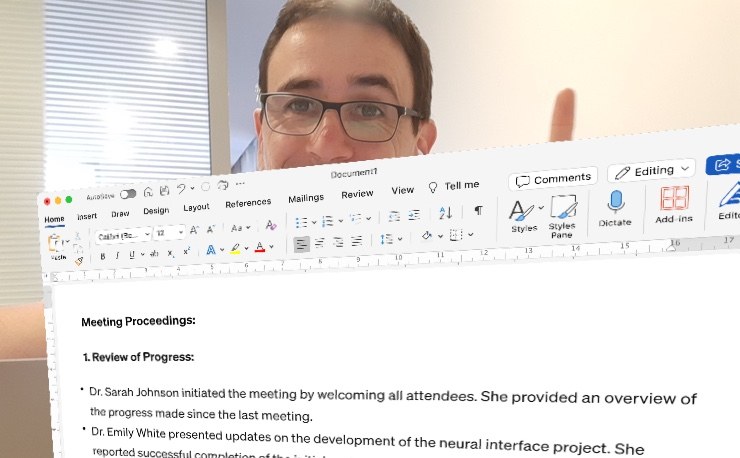I thought it might be interesting for you to hear stories from real project managers.
As a starting point I’m going to talk about my career at Bosch and what I learned there as a project manager.
This will become a series where I plan to interview other PMs from famous companies like Google, Amazon and others. So stay tuned!

About the BOSCH company
Probably you’ve heard about the company Bosch before, and even if you didn’t, chances are that you were in some way using one of their products.
Maybe you’ve seen a Bosch laundry machine at your friend’s house, or you own a Bosch hammer drill. No? Then let me ask you this: Do you own an iPhone? Great, in this case it might be interesting to know that the motion sensors inside the iPhone are supplied by Bosch.
In short: Bosch is an industrial giant whose products can be found everywhere. The company headquartered in Germany has over 400’000 employees worldwide. Quite a lot, right?

What I did at Bosch
I was hired as a project manager and application responsible for the SAP team at the local ICO department (IT coordination). 80% of my time went into leading IT rollout projects.
Basically, what we did was to bring all the plants of our division onto the same IT system. This involved collecting business requirement with my team of process experts, and ensuring that the IT system was customized accordingly. We had to train our key users, set up authorizations, migrate data from legacy systems and more.

Fortunately, I didn’t have to do all this by myself. I had a team of people who carried out the tasks so I could focus on the management and communication part.
As you can imagine, this was a lot of work, and our projects usually took about 1 year from start to finish. It could get very hectic at certain moments with no time to breathe, and we were very happy when a project was over.
The projects I was responsible for
All in all I was in charge of 3 major IT projects:
- SAP rollout in Turkey
- SAP rollout in Mexico
- SAP Rollout in Bangalore (India)
Each project took about 1 year and hundreds of man-days to complete.
Are you looking for a good ERP implementation plan? Here you can get mine.
What I learned during my stint
I had never lead projects of this size before. I would be lying to you if I said I was totally confident when I joined the company. Actually I was quite scared whether I could cope with the new responsibilities.
Not only were the projects bigger than what I had done before. For the first time my main responsibility was the management aspect, and I didn’t have to carry out technical work myself. Also, now I had full budget responsibility.
Here is what I learned:
- managing people
- leading large projects
- project cost controlling
- following a highly formalized project management process
- getting better in dealing with stress
Managing people
While I had lead small project teams before my team at Bosch was much larger.
Managing people sounds very technical, but as we all no it’s not. In fact, it’s more about psychology. The responsibility of the project manager is to make sure every team member is able to contribute in the best way possible. That’s the goal.
In reality the people management part is pretty difficult: Some people are not motivated to give their best, others are too busy with other work. Some people require constant hand-holding while others work independently. The challenge is to figure out the right approach for your team.
To help me become a better leader, I read a number of books about psychology and constantly applied what I had learned.
Learnings:
- Don’t try to change people.
- Instead figure out how you can influence each individual based on his/her personality. For this you need to observe people and understand what controls human behavior.
- Show appreciation for the results your team delivers
- Make sure people communicate frequently with each other (80% of issues are caused by poor communication)
- Don’t shy away from difficult conversations. Share your opinion in an honest but tactful way.

Leading large projects
It’s a big difference whether you lead a million $ project versus a small 50k $ project. There are a lot more things you have to look after and more people you have to coordinate. If a small project fails, few people will notice. If you mess up a large project … well … good luck!
Tips for leading large projects:
- Ask yourself: “What could go wrong in this project?” and take measures to control those problems.
- Ask the above question every day
- Trust only what you see. This is especially true for deliverables. Let your team show you what they have done. This is much better than assuming work has been done (and then finding out later a task is not finished).
- Regularly speak to stakeholders and give a heads-up.
Project cost controlling
Honestly, this is the topic I enjoy least (like most project managers).

Project cost controlling involves getting the actual numbers and comparing them against your plan to see if you’re still within budget. Actual numbers include the actual hours worked, actual travel cost based on receipts and other items.
Tips for project cost management:
- Create a system for cost tracking at the beginning of your project
- Avoid complex Excel sheets with a lot of formulae (get my simple budgeting template)
- Block your calendar and take a quiet room for doing the cost evaluation.
- Find out what caused any deviation (but don’t hunt for the 10th decimal!)
Following a formalized project management process
As someone who craves for structure, I really liked the project management process at Bosch. The depth by which guidelines dictate the way projects are supposed to be managed can be overwhelming, but at the same time the process helps to avoid the common pitfalls of projects.
Typical pitfalls in projects:
- Following a project plan which is not reconciled with everybody
- Unclear roles and responsibilities (who is expected to do what?)
- Lack of resources to carry out the work
Dealing better with stress
Leading a project can cause immense stress at times, we all know that. It’s part of the game. For me, the increased responsibility and impact of my projects meant more stress.
Here is what helps me to calm down:
- Taking short breaks and having a walk outside
- Writing down what’s bothering me
- Talking to my team
- Stop worrying about things I cannot control
How are projects managed at BOSCH?
Bosch is an engineering company that is run by engineers. And engineers love structure and systems (especially we Germans do). It is no surprise that also projects are managed in a very systematic way.
Here are some interesting facts:
- The company has an own department which is responsible for setting the guidelines for project management.
- Both agile and phased methodology is used (with the phased approach being more common).
- Projects must implement certain check points (quality gates) which serve to control the project status. I’ll go into detail later.
- Templates are provided for almost every scenario. Many templates are binding.
(See what project management templates I use in my projects)
Overall, the focus is on defining standards and preventing risks. This makes totally sense considering the size of Bosch. Just imagine what would happen if every project manager would “do his own thing”. In a company with billion-dollar project budgets, tens of thousands of project managers this would mean chaos — and also a huge financial risk for the company.
As a project manager for Bosch you have to deal with a lot of paperwork. This is not so great because it consumes a lot of time. By paperwork I mean documents you have to fill out and get approval for. This is true for any large company, though.
Project cycle and quality gates
Now let’s take a closer look at the project management process at Bosch.
Projects are broken down into phases which you can see below. It all starts with a preparation phase, in which the project organization and project plan are established.
In the next phases, the project team collects the requirements, builds a prototype and implements the desired technological base (e.g. software), which is subsequently tested (here’s my test case template) and rolled out. During the stabilization phase the product is monitored and issuses are fixed.
This process should look familiar to you, because it’s the general flow of a project.

What’s interesting though is the quality gate process. Let me explain it further.
Quality gates are checkpoints at the end of each project phase. For each quality gate, the project manager has to go through a long checklist which asks a number of questions related to the previous phase. The project manager has to confirm whether all the necessary actions were completed or not. This is all about quality control.
Quality gates are meant to ensure overall project quality
To give you an example, after the preparation phase you would have to confirm that a project plan has been created, that budget has been confirmed, that resources are available etc.
After the test phase, the checklist would ask: “Have the tests been completed and test results signed by the customer?”. Check. A traffic light color is issues after each quality gate meeting. So, if there are a lot of open topics, the quality gate might issue a yellow or even red status which is obviously not good. Worst case, a red traffic light may force you to halt the project until all necessary measures have been taken.
Personally, I’ve come to like working with checklists! Sure, it means more work, but the good thing is you don’t forget anything and checklists force you to give an honest picture of the project: Have I really informed all involved people about my project?
Is Bosch an interesting company for project managers?
Absolutely! The sheer number of projects that are carried out each year as well as the size of some projects make Bosch a very attractive employer for people who like to get things done.
What’s more, Bosch is currently undergoing a major transformation of its strategy. You will have the opportunity to help introduce new business models and work at the cutting edge of technology.
The other thing that is great is the international working environment. Bosch has local offices in almost any country in the world. Working with so many different people and cultures was something I really enjoyed.
What else would you like to know?
Now that you’ve heard what it’s like being a project manager at Bosch, what else would you want me to write about? Tell me in the comments.
Author
-
Hi! I'm Adrian, former Senior IT Project Manager and founder of Tactical Project Manager. I created the site to help you become an excellent project leader and manage intense projects with success!



